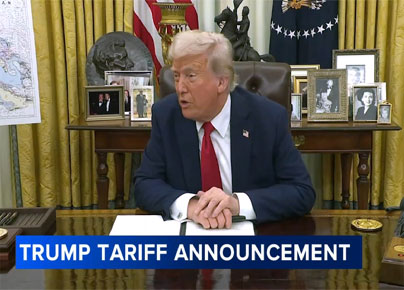Trump's Tariffs Threaten the U.S. Free Trade Agreement with Central America and the Dominican Republic
2025-04-04

Analysts have noted that Donald Trump's administration's announcement of tariffs jeopardizes the application of DR-Cafta. They agree that the unilateral imposition of tariffs on various products threatens the development of the Free Trade Agreement between Central America and the Dominican Republic (DR-Cafta). This trade agreement, enacted in Costa Rica on January 1, 2009, boosted trade relations and attracted investments. The United States is Costa Rica's leading trading partner; in 2024, it was the destination for 47% of goods exports, with over 1,800 products sent to the North American nation.
Costa Rica exported $19.9 billion in goods in 2024, of which $9.4 billion went to the United States. Imports from the U.S. totalled $8.6 billion, generating a surplus of $1.2 billion, according to data from the Central Bank of Costa Rica (BCCR). The last time the country achieved a positive trade balance with the U.S. was in 1987. However, Trump's tariff announcement threatens this trade relationship. Starting April 2, these duties will apply to all agricultural products entering the United States, among the most affected being pineapple, banana, coffee, cassava, frozen fruits, and chayote.
According to data from the Foreign Trade Promotion Agency (Procomer), at the end of 2024, Costa Rica exported $1.6 billion in agricultural products to the U.S., achieving a growth of 43.6% over the last ten years. For the Costa Rican Exporters Chamber (Cadexco), DR-Cafta has been a key tool to ensure preferential access for Costa Rican products to the U.S. market. This agreement establishes a regulatory framework that limits the unilateral imposition of new tariffs.









